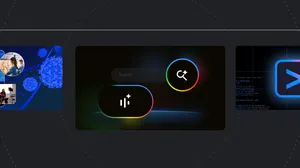Last Mile Education Fund grants help students overcome obstacles to graduation

Fredrick Jaynes, a computer science major at the University of Southern Mississippi, has been on track to a tech career ever since he discovered SketchUp and other tools and participated in a coding week at his middle school. But this semester, a financial aid delay meant he needed to come up with $1,000 on short notice to start classes, almost derailing his plans. Fredrick figured he would have to get a full-time job and drop down to just one class or take a break – until a rapid grant from Last Mile Education Fund covered the fees and allowed him to keep his studies on schedule.
Helping students over the finish line
Unfortunately, Fredrick’s difficulties aren’t unique. Last Mile was co-founded by Ruthe Farmer, Dr. Sarah Lee and Rian Walker to help lower-income tech and engineering students address financial hiccups that could prevent them from persisting to graduation. Only 11% of all students from with the lowest income complete their degree within six years of starting college, and students from underrepresented communities are disproportionately impacted. Last Mile’s grants are typically awarded to students in their final four semesters of college – the “last mile” on the path to graduation – and were previously focused on women and nonbinary students.
Starting today, a $300,000 gift allows Last Mile Education Fund to also offer support to lower-income Black, Latino, and Indigenous male undergraduate computing students. “I see so many thriving young men within a year of graduation who are unable to complete their degrees due to the inability to pay their tuition or living expenses,” said Dr. Lee. “These students often hold multiple part-time jobs, and yet still struggle.” We’re proud to partner with Last Mile to expand their grant-making, and to ensure more men of color in computing are able to persist, graduate and launch into tech.
Last Mile’s unique approach
Last Mile has awarded more than 2,800 grants since 2020, totaling $2.9 million, to help lower-income underrepresented students complete their tech degrees. Unlike traditional scholarships or grants, which invest in a few top-performing students just starting college, Last Mile helps already-enrolled students overcome unexpected obstacles to completing their degrees. Grants range from a few hundred dollars to $10,000, spreading their impact to more students.
Recipients can get emergency funds to pay for rent, internet, tuition and even opportunities like hackathons, conferences and internships – extracurriculars that are crucial for resume building and future career success, but are often out of reach for lower-income students.
Increasing diversity in tech
By 2029, demand for tech workers is expected to increase by 19%. But the percentage of Black or African American men in the tech workforce is shrinking, and currently stands at only 7%. Google’s commitment to diversity includes reversing that trend. This means looking beyond hiring practices to make sure people of color can complete their degrees without the delays or derailments caused by unexpected expenses, and offering the resources and support needed to successfully compete for and launch careers in the tech sector. Partnering with Last Mile is a meaningful step toward that goal.
Students and faculty can learn more on Last Mile's website.







